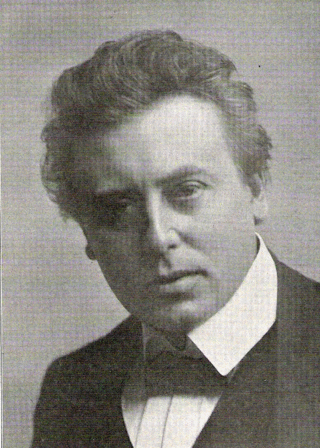Top Qs
Timeline
Chat
Perspective
Louis Glass
Danish composer (1864-1936) From Wikipedia, the free encyclopedia
Remove ads
Louis Christian August Glass (23 March 1864 – 22 January 1936)[1] was a Danish composer.
Glass, born in Copenhagen, was an almost exact contemporary of Carl Nielsen and, like Nielsen, was a student of Niels Gade. However, Glass also studied at the Brussels Conservatory, where he became enamored of the music of César Franck and Anton Bruckner, both of whom stylistically influenced his writing. For several years, he was one of Denmark's leading concert pianists until a paralysis in one arm made him retire from the stage. He then devoted himself primarily to composing. He composed in most genres and wrote several chamber music works of worth, including four string quartets, a string sextet, a piano trio, a piano quintet and several instrumental sonatas.
He wrote six symphonies (1893–1926), which have been recorded on the Danacord and CPO record labels, while some chamber music has been recorded on Da Capo.
Glass died in Copenhagen.
Remove ads
Symphonies
- Symphony No. 1 in E-major, Op. 17 (1894)
- Symphony No. 2 in C-minor, Op. 28 (1899)
- Symphony No. 3 in D-major, Op. 30 "Forest symphony" (1901)
- Symphony No. 4 in E-minor, Op. 43 (1911)
- Symphony No. 5 in C-major, Op. 57 "Sinfonia Svastika" (1919) - Note on the title: This work celebrates the swastika as a Vedic good fortune or Sun symbol. At the time of composition in 1918-1919, the Nazi movement had not been established.
- Symphony No. 6 "Skjoldungeæt" (The Birth of Scyldings), Op.60 (1924)
Remove ads
References
External links
Wikiwand - on
Seamless Wikipedia browsing. On steroids.
Remove ads

